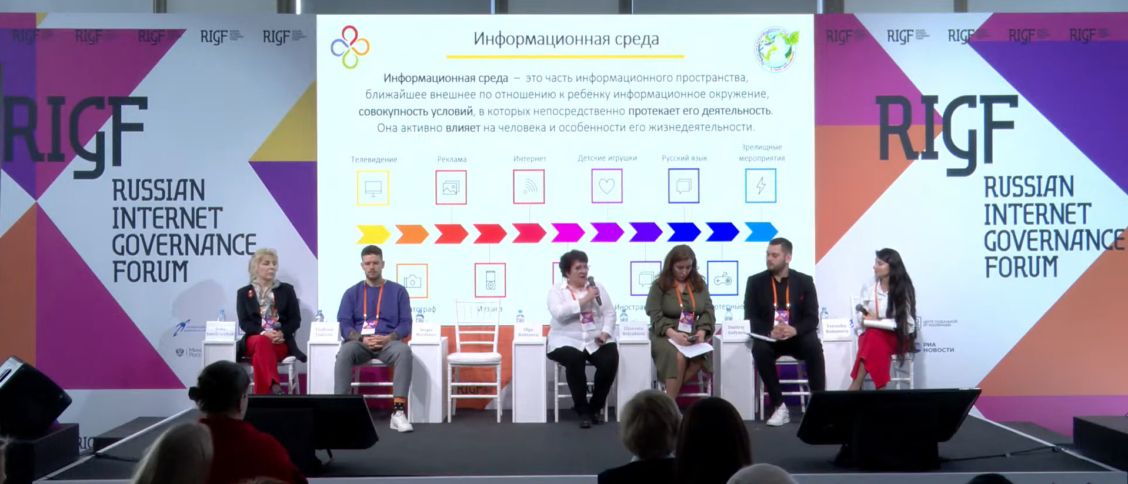One of the RIGF 2023 sessions was devoted to the topics of the children and youth interaction in a virtual environment, the organization of conditions for the younger generation’s peaceful development and education in a digital society.
On April 6-7, Moscow hosted the 13th Russian Internet Governance Forum (RIGF 2023). The event was traditionally organized by the Coordination Center for TLD .RU/.РФ with the support of the Center for Global IT-Cooperation and the Ministry for Digital Technology, Communication and Mass Media of the Russian Federation. The Smart Internet Foundation has become the information partner of the Forum.
One of the RIGF 2023 sessions – “Real And Virtual Worlds: The Red Lines” – was devoted to the topics of the Internet’s impact on personality development, children and youth interaction in a virtual environment, the organization of conditions for the younger generation’s peaceful development and education in a digital society, the formation of information and media culture of participants in educational relationships, and legal aspects of regulating the Internet space for children.
Olga Rubtsova (Academy of Innovative Education and Development) spokeabout the diving of children in the digital environment: “We see how important the digital environment and, in particular, social networks play in the socialization of child. If earlier there were three main institutions of socialization for children: parents, school and “outdoors” – their environment, friends, now there is another factor appeared – the Internet. Events are no longer just actions on the screen. They turn into markers, reasons for new messages and actions. What should we do with all the wealth of the digital world that surrounds us? The answer is simple: all together – parents, teachers, representatives of public organizations – to form an internal filter of the individual.
Elizaveta Belyakova (Alliance for the Protection of the Rights of Children in the Digital Environment) said that a database of data exchange on negative content between companies belonging to the Alliance was recently launched in test mode. She also recalled that the “Digital Ethics of Childhood” Charter, developed in 2021, is open for signing, and all organizations that share the principles of the Charter can join it. To date, the Charter “Digital Ethics of Childhood” has been signed by more than 12,000 organizations in all regions of Russia.
“Content is emotions. And the virtual world is now much more emotional than the classical environments of the child’s socialization – home, school, outdoors. Adults are trying to interest children by referring to their cultural layer, to the content of the past. The younger generation is not interested in it. And this discrepancy leads to serious social crises and other social problems. Therefore, if we want to interact effectively with young people, we must first understand what and why they are really passionate about. And then to speak carefully about those things that we consider destructive. At the same time, do not ban them, but create and offer an interesting alternative,” Vladimir Todorov (Rambler&Co, Lenta.ru) said.
Sergey Mardanov (VKontakte) shared his experience of creating a game on the history of Russia for younger children: “We see that children have a completely different perception of difficult historical moments through the game. They understand more and play it with interest.”
The participants of the section agreed that it is impossible to deprive children of the Internet – it creates opportunities for learning about the world, developing personality and abilities, but it is necessary to understand its dangers and teach children safe online behavior.
The video of the section is available on the official YouTube channel of the Coordination Center for TLD .RU/.РФ.
